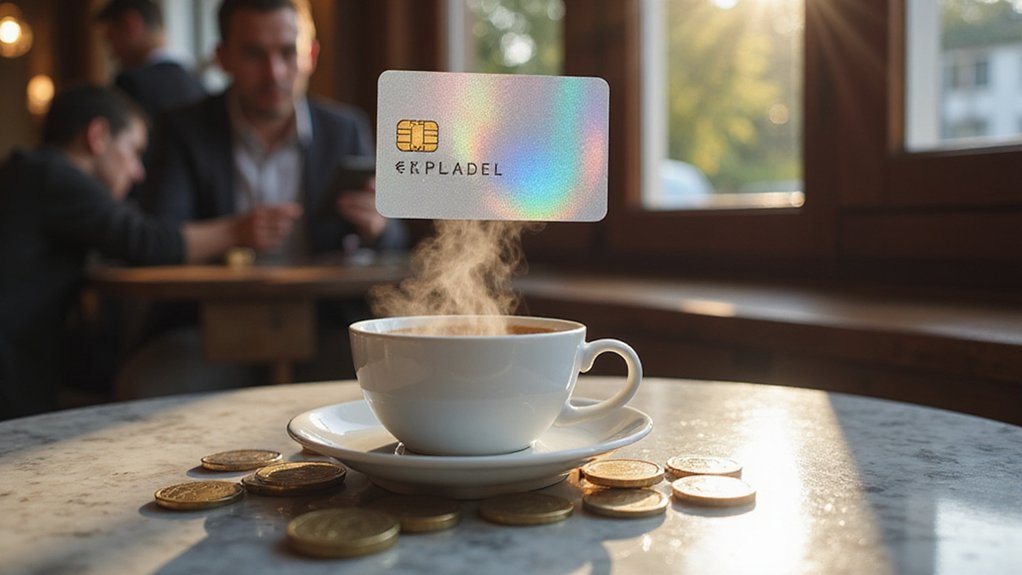PayPal, the digital payments behemoth that once relegated cryptocurrency to the financial equivalent of Monopoly money, has executed what can only be described as a strategic about-face of impressive proportions. The company now facilitates extensive cryptocurrency transactions through its platform, enabling users to buy, hold, and sell supported digital assets with the casual ease previously reserved for splitting dinner checks.
PayPal transformed from crypto skeptic to digital asset enabler, making cryptocurrency transactions as effortless as splitting restaurant bills.
The platform’s crown jewel appears to be PYUSD, PayPal‘s proprietary stablecoin designed to minimize the volatility that typically makes cryptocurrency investing resemble a particularly unforgiving casino game. Unlike other crypto assets that incur standard transaction fees and exchange rate spreads, PYUSD transactions enjoy fee exemptions—a strategic incentive that suggests PayPal views its stablecoin as the gateway drug to mainstream crypto adoption.
Transaction execution occurs through third-party service providers, with exchange rates calculated daily based on aggregated volume and market dynamics. While initial Recurring Buy purchases display immediate rates, subsequent transactions may encounter variable pricing (because consistency in crypto markets would apparently violate some unwritten law of digital finance).
Users can access extensive transaction histories through PayPal’s Cryptocurrencies Hub, with exports available for manual reconciliation—though API access remains limited to three years of data. The platform’s infrastructure accommodates both consumer and business accounts, segregating crypto activities into dedicated hubs while allowing flexible funding sources ranging from bank accounts to PayPal balances.
Recurring Buy features enable automated periodic purchases, transforming dollar-cost averaging from investment strategy to set-it-and-forget-it convenience. PayPal’s compliance measures include mandatory risk disclosures and transaction confirmations, acknowledging the non-reversible nature of crypto trades with the solemnity typically reserved for surgical consent forms. Users must maintain rigorous security protocols for their personal information, including IDs and passwords, while providing comprehensive identifying details for account verification.
Educational components embedded within terms attempt to inform users about cryptocurrency’s inherent volatility—though whether anyone actually reads these warnings remains an open question. The company maintains downloadable transaction reports and monthly statements for up to seven years, supporting multiple file formats including QuickBooks compatibility. PayPal UK Ltd operates under FCA authorization as an electronic money institution, providing regulatory oversight for supported cryptocurrency services.
This extensive record-keeping serves dual purposes: facilitating tax reporting and providing audit trails that regulatory authorities increasingly demand. Beyond traditional buying and selling, users can explore staking opportunities that offer passive income potential similar to interest-bearing accounts. Through PYUSD integration and fee exemptions, PayPal positions itself to pioneer mainstream cryptocurrency adoption while hedging against the digital asset sector‘s notorious unpredictability.









